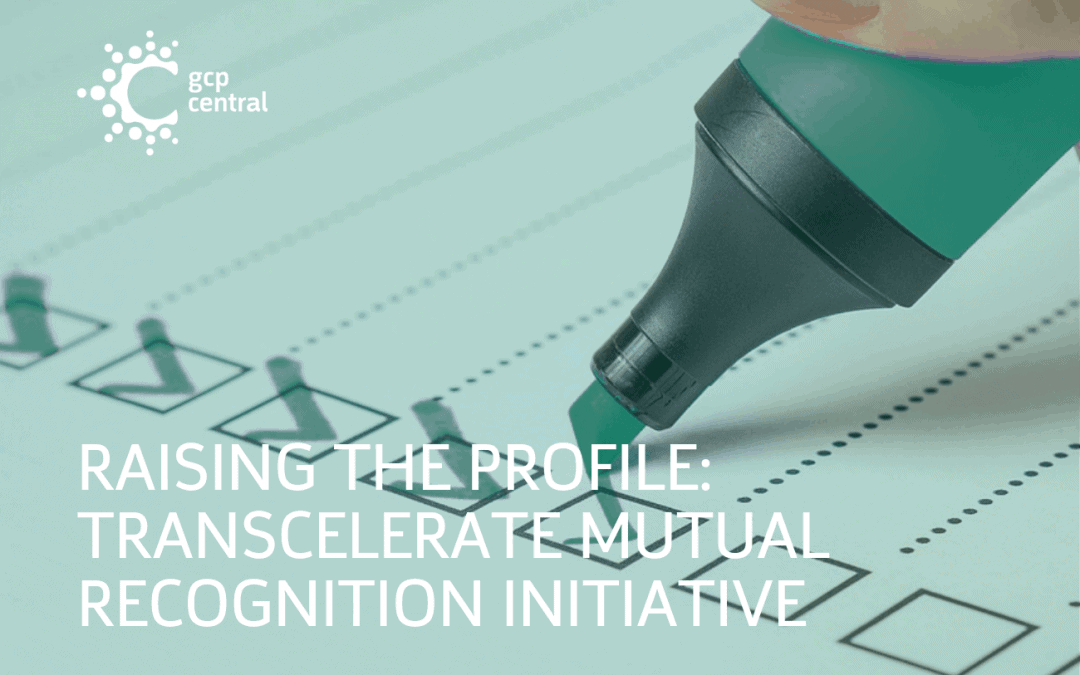In January 2019 we wrote an article about what it means when a training provider claims to have “TransCelerate acknowledged” GCP training.
The article sparked lots of interest from our community; with many people responding, engaging and echoing the findings from our 2018 mini questionnaire, which was completed by over 250 pharma, biotech, and hospital staff:
- More than 50% said they had 2 or more GCP training sessions in the last three years. A small group of 14 respondents had more than 5 GCP courses in the previous three years.
- 85% of those working in hospitals are not familiar with TransCelerate
- 37.5% of respondents think the goal of TransCelerate is to provide certification to GCP Training Providers or perform a quality check on training contents. (81% of this 37.5% are working in hospitals or universities)
Duplicating GCP training is unnecessary
Reducing the time spent on GCP training is exactly what the TransCelerate Mutual Recognition Program wants to achieve. Our findings from the mini questionnaire prove that more needs are done to support and continue the innovative work of TransCelerate, and similar projects.
Read the original findings here.
What can we do to raise awareness of the TransCelerate Mutual Recognition Initiative?
At GCP Central, we believe that all pharmaceutical and biotech companies should be a part of TransCelerate. Currently, only pharmaceutical companies have joined this initiative, along with many other organizations in partnership with TransCelerate to provide valuable insights.
Top 5 tips for raising awareness for the TransCelerate Mutual Recognition Initiative
# 1 Communicate:
TransCelerate member companies could increase internal communication to their staff to ensure they recognize the acknowledged GCP certificates or other training providers / CROs and Transcelerate members. CRAs and site startup staff shouldn’t have to push their company’s GCP training just because it’s part of their initiation checklist.
# 2 Promote Membership:
Mentioning the TransCelerate membership, and its implications, in the SOPs and Policies of Transcelerate members could increase understanding and adherence to the TransCelerate Initiatives. This increases the speed of initiation of sites and helps to get research results and data faster.
# 3 Increase Awareness
We should make investigators, clinicians and site staff aware of the existence and goal of TransCelerate Mutual Recognition. We encourage TransCelerate, the GCP Training Providers, pharmaceuticals, biotech companies, and all partners such as CROs to spread awareness. This will improve efficient clinical trials and motivate site staff. The success of this initiative is in collaboration between sponsors and investigators. Let’s help each other to make the process efficient.
# 4 Talk about the Benefits
GCP training providers should actively provide proof of acknowledgment on their certificates. They could also inform their students about the meaning and goals of the Mutual recognition program. Transcelerate could communicate about the program through investigator platforms and other channels reaching site staff.
# 5 Strength in Numbers:
There are 400 training providers in the list of TransCelerate acknowledge GCP courses. TransCelerate could do more with the information about the content and method of the GCP training provided, like qualify training providers, improve the offerings, and for the first time in the world of GCP training, introduce a standardized GCP training course.
Currently, Transcelerate doesn’t review the content of the courses: it is a self-attestation of the GCP training provider, ensuring the requested minimum requirements (= chapters 2 and 4 or ICH-GCP) are captured in the content. How it is captured, and what learning method is used to get the GCP message across is not controlled.
There is the opportunity for TransCelerate to start filtering out the GCP courses with lower quality, courses that consistently solely or copied text from ICH-GCP, “enriched” with ten questions checking your reading skills. These courses are not reaching the goal of actually getting GCP knowledge into the heads and minds of clinicians and site staff. This is where real efficiency can be reached: when good clinical practices are implemented into the day to day jobs or clinical research staff, inspired by active, context-based GCP learning. You will no longer need GCP retraining.
GCP Central likes to be at the forefront of changes in the clinical research industry. We want to make clinical trials smarter and faster by being TransCelerate acknowledged, helping to spread the word amongst investigators, and by being actively involved in initiatives.
What can you do?
Are you working for a pharma company?
Check whether your company is a member of TransCelerate. Is your company a member? How are the Initiatives implemented in your policies and SOPs? Discuss during a team meeting and make a plan on how to use the TransCelerate Initiatives to optimize your site initiation and collaboration.
Are you working in a hospital?
Check whether your GCP certificate is TransCelerate acknowledged and still valid. When asked to attend a GCP training as part of Site Initiation by a TransCelerate member, show your acknowledged certificate and ensure it is accepted by explaining the value of the acknowledged certificate.
Are you working for TransCelerate?
Promote the efficiency of standardized GCP training using recognized and efficient training methods. Start filtering out the sub-par training methods, and promote the ones that are proven to work.


